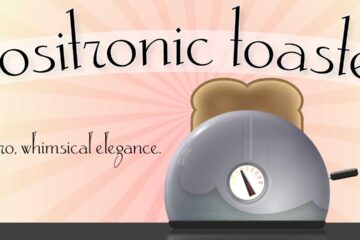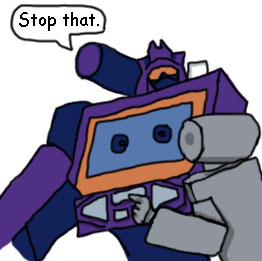I started writing short science fiction with an eye for publication in the 1980s. I was sixteen and stupid to think I was ready, but that fact remains: I was an intensely serious writer of science fiction before 1990, as intensely serious as a teenager can be.
My angst-filled teen diaries are full of the lament, “Everything has been invented already!” I thought I should be able to open up a spiral notebook, set pencil to paper, and with nothing but pure imagination, create magnificent new technologies never before dreamt of. Isn’t that what Asimov did at my age? But, dagnabbit, he lived in a world without computers at my age! A world without microwaves and fax machines! I felt myself at a compositional disadvantage because of my technological advantages.
Today I was walking to lunch, wondering if it would be okay to read the library eBook on my phone while I walked. “Wow,” I thought, “What 1989 me would think of this!” The very sentence, “I have a book on my phone” would be incomprehensible to the teenager who thought everything interesting had already been invented.
We aren’t as preoccupied with invention these days. I have data! Google’s wonderful phrase frequency tracker finds “Everything that can be invented” appears in the lexicon in 1980 and peaks shortly after 2000.
(Cool article linked there with the probable origin of the phrase.)
Why were we so preoccupied with a lack of invention in the 1980s and 90s? Part of it, in my opinion, is that the innovations being made in that era were incremental. We had computers! Each year we got a newer, fancier computer. So? No one could see the incremental improvements eventually changing the nature of the computer itself. We had the internet! William Gibson and other authors of the era wrote eloquently about a cybernetic future that predicted many things – cheaper, ubiquitous access, hacking and other data crime. Somehow, though, we missed that these were ‘things’ to ‘invent’. Science Fiction has always been better at predicting gadgets than social change, also.
The thing is, inventions aren’t sudden works of genius. They are incremental adjustments to existing technologies and frameworks. What we call ‘invention’ are those hard to place moments with things change in a delightfully tangible way our monkey-brains can comprehend. First phones could send text. Then phones had cameras. Then they had web browsers. (Remember Lynx?) Then they could get email. Then Apple puts all this existing tech in a smart new case with a touch interface and HOLY HECK IT IS SOMETHING NEW!
Yeah okay I just got a smart phone I’m a little obsessed, okay?
The point is: great science fiction writers do not, in fact, invent something whole-cloth from the genius idea-mine of their mind. They take existing technologies and ask, “What if?” Science Fiction had sentient AI before anyone dreamed of computer networks because it was easier to ask “What if we could make a man?” than to ask “What if we changed the way we distribute and consume information?” One of the great things to see in reading science fiction is the way ideas and technologies get tested and refined. New generations look at the preceding answers to that “what if” and add their own, “actually, it wouldn’t be like that…”
Fiction, like technology, builds gradually on the work of our predecessors. I think that’s beautiful.


